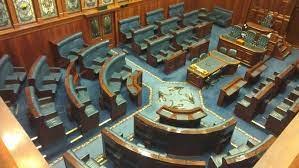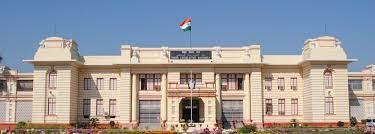To know, whether legislative assembly can dissolve legislative councils or not, we need to understand the meaning of legislative assembly and legislative council.

Table of Contents
What is the Legislative Assembly?
The legislative assembly is the lower house of the state legislature. The members of the legislative assembly are directly elected by the common people. The legislative assembly gets dissolved after the term of 5 years. It is there in each and every state. The maximum number of members allowed is 500 and the minimum number of members is 60.
What is the Legislative Council?
Whereas The legislative council is basically the upper house of the state legislature. The members of the legislative assembly are elected indirectly by the state legislative assembly. Each member serves for 6 years.
The legislative council is currently there in 6 states only, they are:
- Andhra Pradesh
- Bihar
- Karnataka
- Maharashtra
- Telangana
- Uttar Pradesh
An important point is that its members should be 1/3rd of members in the Legislative assembly and it should not be less than 40.

Can Legislative Assembly dissolve Legislative Council?
Yes, it is possible to dissolve a legislative council under Article 169 of the Indian Constitution which states that “with the majority of at least 2/3rd members present and voting of legislative assembly may pass a resolution which either can dissolve a legislative council of a state or can create one in case the state doesn’t have one.”
Why is Legislative Council getting abolished?
We have already witnessed the abolishment or dissolution of the upper house in states like Punjab, West Bengal and Andhra Pradesh.
Critics justify its dissolution by saying that it doesn’t add any value to democracy and thus is useless. It was argued by the critics that when the second chamber that is legislative council agreed with the first that is legislative assembly it turned out to be superfluous (unnecessary) and when it disagreed it turned out to be pernicious (harm in a subtle way).
It was quite evident that if the lower house would be having the majority party members and the upper house to have the majority party members then there would be no difference in opinion between each other and which could make agreement activities quite superfluous.
Also if the upper house had opposition party members and the lower house had majority party members then also there would be a dispute and the upper house might take extra 4 months to pass that bill agreed upon by the lower house.
Example of Punjab’s Legislative Council.
If we see the example of Punjab, Vidhan Parishad(Legislative Council) was dominated by Congress and Vidhan Sabha(Legislative Assembly) was dominated by the Akali party, hence the situation used to get quite wound up and was becoming difficult to pass bills. So, they decided it’s better to abolish Legislative Council as it doesn’t add any value.
Conclusion
Thus in the conclusion, we can figure out that it is possible for the legislative assembly to dissolve the legislative council under article 169 of the Indian Constitution with the majority of 2/3rd in the legislative assembly.


